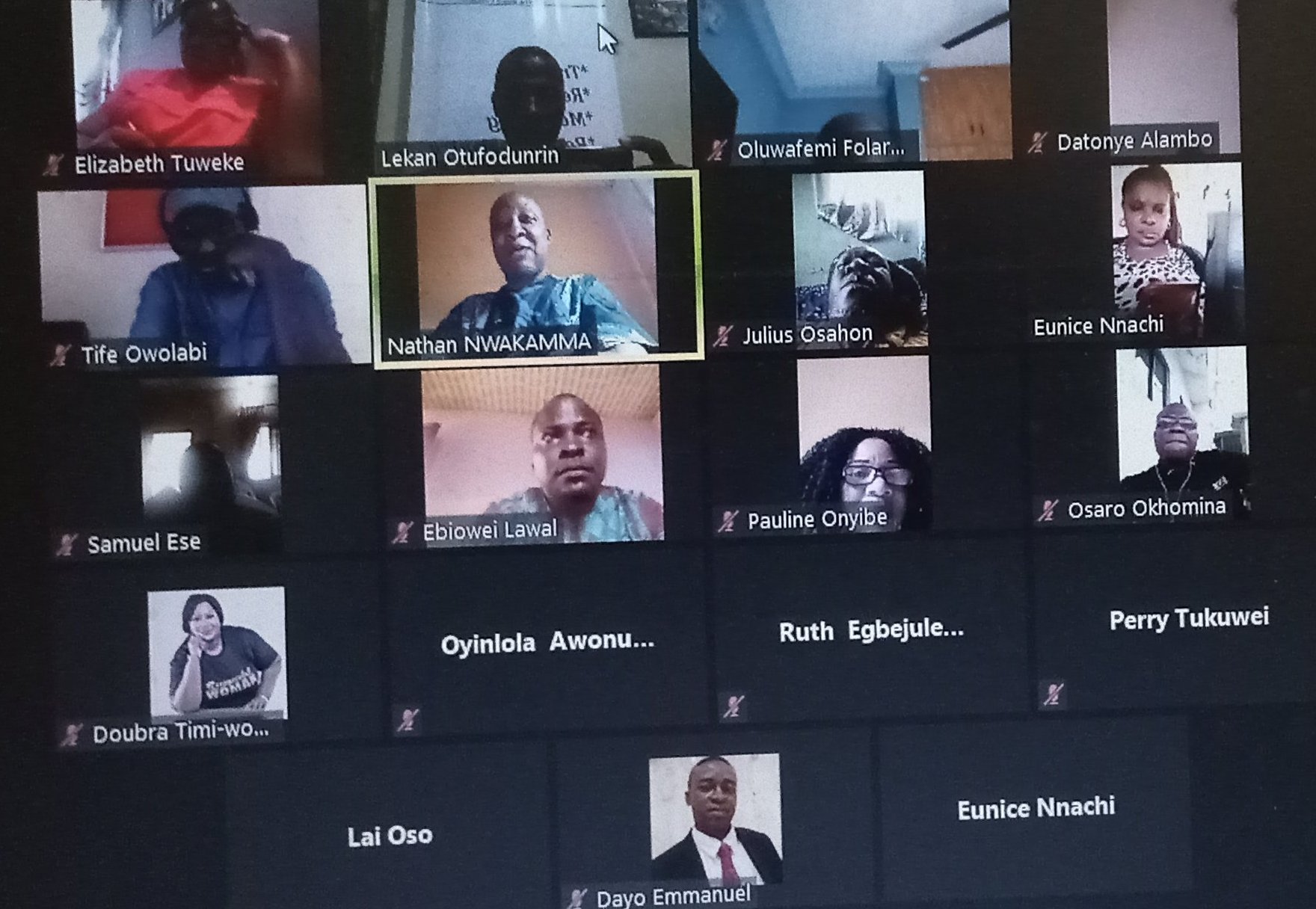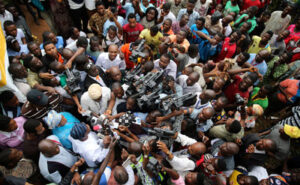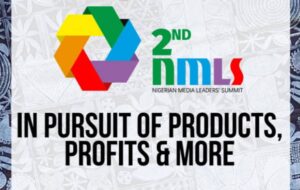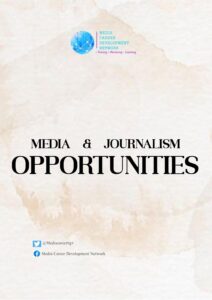By Dayo Emmanuel
Executive Director of Media Career Development Network (MCDN), Lagos, Mr. Lekan Otufodunrin has advised journalists to take personal responsibility for their career and not leave it to their employer’s.
Otufodunrin gave the advice at a workshop for journalists in Bayelsa State organised by MCDN and sponsored by the United States Consulate General, Lagos.
“Your career development is your responsibility, not your employer’s. They can provide some training for you, but sometimes you will get the opportunity for training and they may not even allow you to go,” Otufodunrin, former Online Editor of The Nation Newspaper said.
“You must decide what works for you. If you are lucky, your employers may give you support. Plan and take deliberate efforts that are sustainable.
“To be able to hold the government accountable the way we are asking you to do, you need to have a level of satisfaction and be making steady progress.
“You need to be passionate about your job and be ready to make the necessary sacrifice. If you are not happy on your job there is no way to hold anybody accountable,” he said.
Otufodunrin noted that the media industry lacks the structure for career progression with journalists working for years without adequate remuneration and becoming disillusioned.
“We are easily compromised by the government and those we are supposed to be reporting. We can’t do that and do what is expected of us. Meanwhile, our industry is filled with all kinds of obstructions and we need to achieve career goals.”
Encouraging the participants further, Otufodunrin advised journalists on the need to occasionally examine their career.
“Like we do a medical checkup, once in a while, we need to do a career checkup as well. No matter how long you have spent on the job, even if you have spent 30 years on the job, you need to be able to do a review to see what is working and what is not working.
“If you are going to hold the government accountable you must have a level of fulfilment yourself. You must have a career goal with a timeline of achieving them. There may be a need to review them and know how much progress you are making. It is never too late to get it right.”
READ ALSO: ONE YEAR OUT OF THE NEWSROOM, WHAT I HAVE LEARNT – OTUFODUNRIN
The Executive Director of MCDN, however, tasked journalists that they must know what type of journalist they want to be and what image they want to project about themselves.
To achieve their career goals, Otufodunrin said journalists must know how to audit their skills, apply for fellowships and must have an online presence that is searchable.
“Audit your skills, learn what you don’t know. Write down what you can do. Learn the ones you cannot do. There are new concepts coming up, what do you know? You must ask yourselves,” he said.
He also told journalists to “Master the new media and use it professionally. Have large followership on social media. If you leave your media organisation today you will still have an address somewhere if you are visible online.”
“Apply for fellowships, awards and grants. But for you to be able to win these things, you need good reports. There are many media organisations you can join online, subscribe to their newsletters.
“You must have a searchable online presence. People must be able to search your name online and be able to find what you have done. Search your name and see if you would like what comes out and check if your major stories come up,” he said.
In his own presentation, former Dean of Media Studies, Lagos State University, Professor Lai Oso said journalists must take responsibility for their lives while reporting conflicts.
Explaining conflicts and their reasons, Oso said, the conflicts in the country are brought about by the struggle to control political and economic power which journalists must understand well.
“At the community level, people struggle over land. Herdsmen and farmers engage in conflicts over access to agricultural revenue which occurs as a result of desertification and climate change.
“In the Niger Delta, conflicts arise by reason of oil exploration and the failure of the government to take care of the people who suffer from the exploration, there are so many reasons for conflicts,” he said.
On how to report conflicts, Oso noted that there are people who have argued that the news media provide the oxygen for conflicts, terrorism and banditry because of the way the media report conflicts.
“There are also people who believe if the media take some steps, it can reduce conflicts. As journalists, we need to be objective in our reports. Some say that journalists are not peacemakers; they only report and leave while some believe media report often escalate crises.
“Conflict sensitive journalism says give voice to the women and children because the general assumption is that these are the people that are suffering. Give attention to the plight of the ordinary people that is what conflict-sensitive journalism is all about,” he said.
Oso, however, enjoined journalists to be responsible for their own lives while doing their jobs as only living journalists can write stories.
“Let us maintain the ethical standard of the profession and be careful,” he said, adding that “No story is more important than your life. However how exclusive the story is, don’t endanger your life, only a living journalist can do a story.
“You must do a risk analysis of any area you are going to cover a political rally. You must know what kind of security is available; you must know the escape route and the geography of the area.
“You must do the risk analysis, you must inform your superiors, they must know where you are going. As a lady, do not go alone to interview a man in a hotel. While covering a political rally, don’t put yourself in the crowd, locate where the security agents are and don’t be too far away from your colleagues. Always be on the alert,” he stated.






